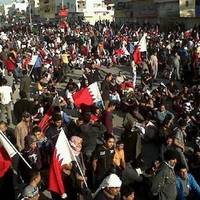The Obama administration has been criticized in recent weeks for its soft response to the suppression of the uprising in Bahrain. The mild diplomatic protest by the U.S. to Bahraini King Hamad bin Isa Al Khalifa's violent crackdown on Shiite pro-democracy protesters stands in sharp contrast to U.S. reactions to Arab uprisings in Libya, Egypt and Tunisia. The Obama administration has justified its tolerance of the Bahraini crackdown in the context of Iran-U.S. rivalries in the Persian Gulf. The argument made directly or indirectly by American diplomats is that if Bahrain's Shiite majority ousts the ruling family, Iran will gain influence in Bahrain and undermine U.S. interests. Saudi Arabia used a similar excuse when it sent ground troops into Bahrain last month at the request of King Khalifa. Not surprisingly, Iran has strongly protested the crackdown and has warned of severe "consequences."
Current U.S. policy toward Bahrain not only ignores the basic human rights of Bahrain's Shiites, but it also neglects the potential adverse consequences of this policy on U.S. interests in Iraq. If Iran were the only country outraged by the suppression of the Bahraini protests, it would have made sense for the United States to focus on preserving its strategic relations with the ruling families in Bahrain and Saudi Arabia. But the crackdown has also infuriated Shiites in Iraq, where they are the majority sect and dominate the central government.
The United States would do well not to ignore the potential adverse effects of the Bahrain crisis on U.S.-Iraqi diplomatic relations and on Iraq's domestic political stability. Recent news reports indicate that the oppression of Bahraini Shiites has caused significant anger and frustration in Iraq -- far more than in Iran. While in recent weeks Iraqis have been preoccupied with protests against their own government's corruption and inefficiency, they have not ignored the developments in Bahrain. There have been numerous large protests in Shiite cities in Iraq on this issue, and several Shiite politicians -- including Iraqi Prime Minister Nouri al-Maliki and secular Shiite politician Ahmad Chalabi -- have voiced concerns.

